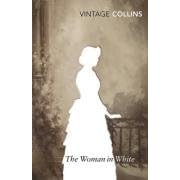In September 2008, I emigrated to France, with the idea of remaining here permanently. And here I remain, and here I am happy (for now, but with the hope of that never changing). I was in the fortunate position of already having a fair grasp of the language before coming here, and while the best way of improving one's day-to-day use of the language comes through contemporary engagement with it (e.g., through French speakers - check -, through contemporary print media such as free metro magazines - check -, and through other contemporary media sources such as television and radio - erm, half a check, since we don't have and have no intention of acquiring a TV), I do also enjoy the privilege of being able to read books in the language. While this may not improve my contemporary French much (in the way of idioms and whathaveyou), it can only solidify other things, such as grammatical knowledge and vocabulary.
The joy of reading is pleasantly widened when one is given the chance to read in multiple languages, not only by the access to a greater range of stories but also in terms of cultural and linguistic access. And yet this joy is paradoxically tainted: very few novels are translated into English (relative to the number that are actually released in their original language) and while in some cases it is perhaps for the best, the aforementioned joy is at times tainted with the paradox that others will not be able to share it with you, since the lack of translation means there is no way that they will be able to read it in the near future.
This, to me, is still something of a puzzle. Why is so little work translated into the most popular languages (let's say, for the sake of argument, that these are English, Spanish and Chinese)? Why wouldn't publishers and agents want their authors' work to have maximum worldwide exposure? Is it due to a lack of interest from readers (perceived or actual)? Is it to do with the financial risk involved? Is it down to a lack of translators? Or something else?
Certainly the translator's task is no easy one; this is something that David Lodge acknowledges publicly in the foreword to his 2008 novel Deaf Sentence, which frequently draws on puns relating to deafness and death, including in the novel's title. To this end, he offers up his novel as a dedication to the translators by way of advance apology. But it is not only the translation of idioms that challenges translators - the uses of language that inextricably bind culture into them, such as the French 'tu' and 'vous', can often go horribly wrong in translation. In one particular translation of Pippi Longstocking, where the Swedish equivalent of this is handled quite badly, it took me years to understand what the series' original author, Astrid Lindgren, had been driving at in Pippi's rudeness towards her teacher.
This is certainly an issue of unending contention. However, we can only expect it to decline further if more literature lovers do not take languages at school and university (in the wake of the UK Labour goverment's policy by which foreign languages are no longer compulsory after the age of 14, when most only take up a second language at 11 as it is, fewer and fewer choose to study another language further and with any gravity). If the importance of other languages is not emphasised, so that the sharing of ideas the world over can be facilitated, even more books can be expected to be lost in the gulf of translation.
First three Chapters....
16 years ago









